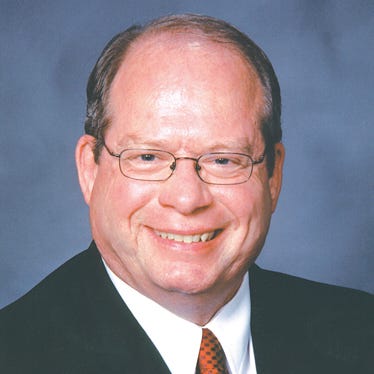
Years ago, environmental activist Mark Lynas - armed with a machete in hand - crawled through the mud seeking European genetically-engineered (GMO) crops to destroy. He believed GMOs were harmful for the environment, and considered herbicide resistance “the original sin of the environmental movement.”
Lynas, speaking to farmers and ranchers at the American Farm Bureau annual meeting held in Orlando, Fla. in January, said, “It was the perfect storm - Monsanto plus Roundup plus herbicide resistance, plus this unnatural occurrence of genetic engineering,”
Three years ago, Lynas did an ‘about face’ and abandoned his anti-GMO crusade. Today, he actually supports and defends biotechnology, and is a partner with Cornell University to expand GMO crop use to enable farmers in less-developed countries grow improved crops without pesticides.
Why the about-face on GMO crops? The science of GMOs, says Lynas.
“As a scientist, you must have data to back up what you’re saying,” Lynas told the Farm Bureau crowd. “And I realized I wasn’t holding myself to the same scientific standards on GMOs as I applied to my research on climate change.”
He added, “You can’t pick and choose where you use science to back up your argument - you have to be consistent.”
Lynas’ message today is that science and technology need to progress even further to preserve the precious (natural) resources available.
In addition to endorsing GMO science, he calls for more transparency on GMOs to help dispel people’s fears, created in part by commonplace scare tactics used by extreme activists.
“That’s why I support mandatory labeling,” Lynas said. “Any single company that voluntarily labels GMOs can be targeted by activists. But if everyone labels everything? They have nothing else to fight…They say they are for choice and if consumers have a choice (then) activists can’t fight it.”
Lynas believes GMO transparency can help dispel people’s fears since they may assume something could be risky if they think information is being withheld from them.
He pointed to the recent decision by the Campbell company – best known for their soup line - to voluntarily label which Campbell’s products do and do not contain genetically-modified foods. Lynas believes Campbell’s decision reduces the odds for being “demonized for having GMOs in their food.”
About the Author(s)
You May Also Like






